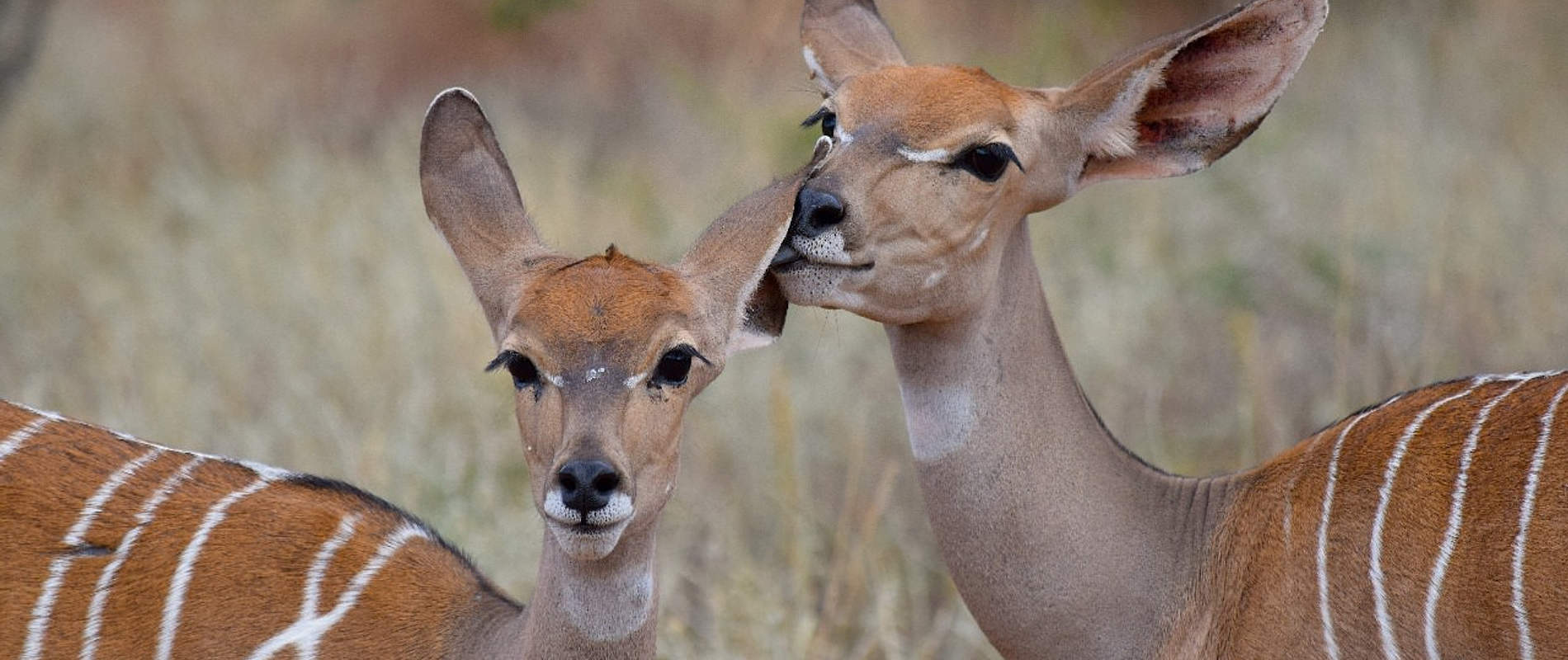You probably know us best for our work with orphaned elephants, from the early days with the likes of Eleanor and Olmeg, to the babies who are currently in our care, like sweet Musiara and mischievous Kiasa. However, our promise to rescue, raise, and reintegrate orphans back into the wild isn’t just one that we make to elephants — it’s a commitment that we make to all wild orphans who pass through our care.
Welcome to our first edition of Field Notes from the Sheldrick Wildlife Trust (SWT). This is designed to bring additional interesting stories to your inbox each month, keeping you connected to our work and the personalities — both two-legged and four — behind the scenes. Through this news update, we will give you an exclusive peek into some of the less-talked-about aspects of the SWT, along with latest news from our projects. In light of Sala’s recent addition, it felt only appropriate to begin by introducing you to the much cherished (though perhaps less prominent) non-elephant orphans in our care. Without further ado…
– Angela Sheldrick

It's not only elephants:
You probably know us best for our work with orphaned elephants, from the early days with the likes of Eleanor and Olmeg, to the babies who are currently in our care, like sweet Musiara and mischievous Kiasa. However, our promise to rescue, raise, and reintegrate orphans back into the wild isn’t just one that we make to elephants — it’s a commitment that we make to all wild orphans who pass through our care.
Take our Kaluku Field HQ, which is home to an ever-growing menagerie. Cheza the baby buffalo, one of two infant buffalos who have come into our care in the past month, joins the likes of kudus Asha, Ziwani, Sala, and Sabasa; waterbucks Miraa and Mpya; and Tickey the dik-dik. Our Yatta De-Snaring team discovered Cheza in a dire state, with severe bloat and a nasal infection having been trapped in mud. We had a fight on her hands to save her, ultimately puncturing her stomach to relieve the bloat. Now, little Cheza is a picture of health, bounding around the grounds vocalizing to anyone who will listen. Like all those who came before her, she will return to the wild when she’s ready.

There is no moment more affirming than when an orphan goes wild and starts a family. We wondered if that might be on the cards for Sala after she took a wild walkabout last September and was seen a number of times with an extremely handsome wild suitor. On her return, our suspicions were confirmed as we watched her stomach grow, and then earlier this month she introduced us to her brand new baby, who we have named Moja (“One” in Swahili). Sala is absolutely smitten with her little foal and is eager to show him off to everyone at Kaluku. She was rather confused early on, not quite sure how to handle her new found situation, but we chose not to interfere too much as we watched her confidence in motherhood grow each day. We feel immensely privileged not only for the role we play in raising these orphans, but also that they choose to share their burgeoning wild families with us, and seemingly navigate their two worlds seamlessly.

Voi, meanwhile, plays host to more robust orphans like buffalo, eland, and zebra. They join the elephant herd on daily walks out into Tsavo National Park, where they slowly assimilate into the herds they meet. Tawi and Kore, our elands, now head off for months at a time, before returning to visit their human family for a spell. Ol-Tukai, Voi’s resident buffalo, joins them on these jaunts and is becoming more confident in the ways of the wild, and he too chooses to visit and come back from time to time. Often our Keepers come across them on their daily meanderings and despite these orphans being comfortable amidst wild herds of either zebra or eland, they peel off to greet their human family before returning of their own accord.
This all began many moons ago, during Daphne’s Tsavo days, when she and David raised orphans of almost every species imaginable. From my own childhood, I fondly remember one of my favorite pets, an orphaned eland that I affectionately called ‘Baby’, and the many, many others that became an integral part of our lives and helped shape a deep understanding for each of them, as nothing gives you a better insight into the species than raising them from infancy, exposing one intimately to all their quirky ways.
Each orphan has a special place in our hearts, but if you were to ask Daphne about her most special orphan of all time, she would have told you about Bunty. Bunty was an orphaned impala who Daphne raised from infancy. When grown, she lived a life of two worlds: by day, she presided over our lawn in Voi, and by night, she joined a wild ram and his harem. During the nine years with Daphne, she gave birth to nine wild babies of her own, and she chose to give birth just below the garden in the bush with Daphne by her side each time.
Being in a position to help these victims of circumstance through their milk-dependent years, and expose them to the natural world so that they can live a wild and free life, is testament of the real ripple effect of our work, which over so many years has quite literally given a wild life back to hundreds of animals of different species.

Angela Sheldrick produces Field Notes as a special monthly email, providing her personal insight into varying aspects of Kenya's wildlife and habitats, along with the work of the Sheldrick Wildlife Trust. To receive the email edition of Field Notes, which includes interviews with our staff, please choose the 'get our emails' option at the bottom of this page and subscribe to the International Newsletter.
